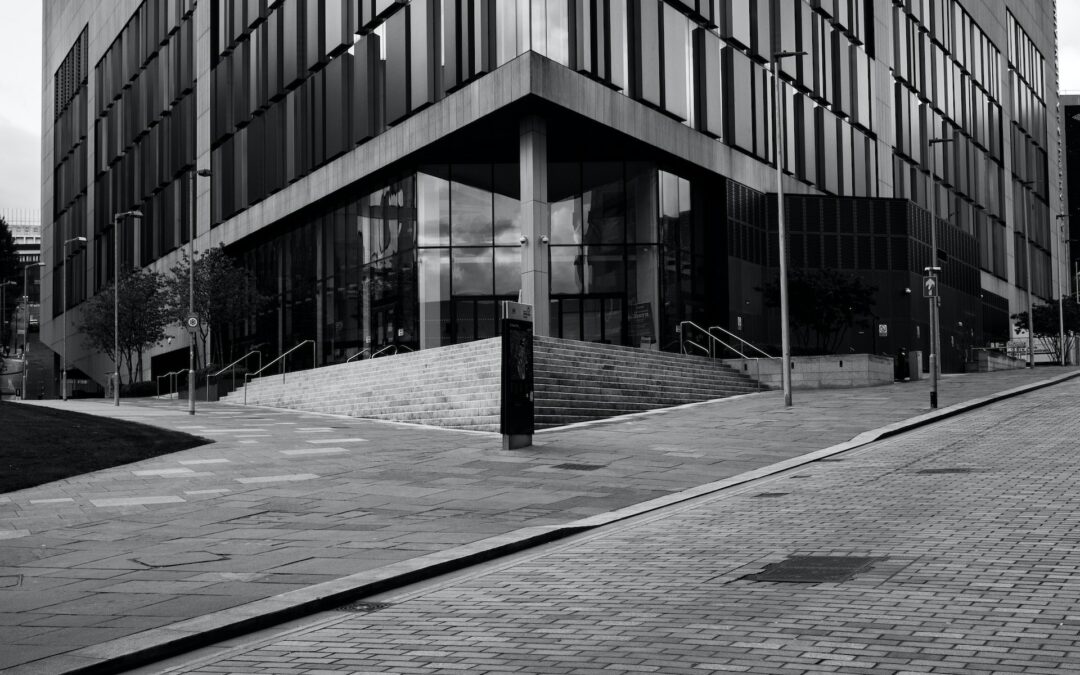Where facade cladding is concerned, there are multiple choices. But if you’re looking to move away from traditional materials like terracotta or brick cladding, Dekton® is an attractive alternative. And its appeal is more than surface deep, as this innovative material matches good looks with high performance.
Is Dekton® a good match for your next project? Read on to find out more.
What is Dekton® facade cladding?
Dekton® cladding combines the beauty of natural stone with the benefits of low porosity, UV and stain resistance and the ability to withstand extremes of temperature. It’s also an ideal material for updating and modernising existing facades due to its lighter weight and ease of installation.
How is Dekton® created?
Although this style of facade cladding accurately mimics natural stone, Dekton® is an entirely inorganic material which contains no carbon. More than twenty different materials make up each slab. And these carbon-free materials are found in 90% of the earth’s crust.
These materials, including pigments, are heated in a special kiln during the sintering process. This process results in a lightweight, ultra-compact material impervious to water.
Cosentino has invested 14 million euros in the best available techniques to achieve the highest levels of sustainability in the manufacture of this innovative material. For example, 100% renewable energy is used to create each slab. In addition, Dekton® comes with an Environmental Product Declaration and is Carbon Neutral certified.
A fully customisable solution
Available in a huge range of surface finishes and colours, Dekton® facade cladding is a highly versatile solution. It’s suitable for interior and exterior applications, including kitchen worktops, bathroom walls and interior flooring.
As a cladding material, it’s suitable for:
- Fixed facades
- Ventilated facades
- Curtain wall
- EIFS systems
- Industrialised systems
- Window and door apertures
For ventilated facades, Dekton® slabs act as an exterior skin with the structural wall bearing the design load and providing stability. In this application, the facade offers a range of functional benefits, including insulation and energy efficiency.
When used as a bonded facade, the material is applied directly to the surface of the building, leaving a small cavity. This bonding process helps wick moisture away from the original building and improves thermal efficiency.
Technical features
However demanding the application, Dekton® has a range of technical features that are a match for the job.
- The material is highly resistant to UV, so the baked-in pigment won’t fade over time.
- It’s also fireproof to EN13501 standard.
- Dekton® is more resistant to scratching and abrasion than porcelain or granite.
In addition, slabs are available in different thicknesses giving this material superior mechanical resistance to wind and impact damage.
All in all, if you’re looking for a facade that is low maintenance, resistant to thawing and freezing and easy to clean, Dekton® is an excellent choice.
Advantages of a Dekton® facade
Aside from its technical features, there are clear reasons why Dekton® facade cladding could be right for your next project.
The uniformity and depth of colour, plus tonal stability, make this material a fantastic design tool. Facade surfaces are virtually gap-free for visual continuity. And the impressive range of geometric shapes allows you to cover even the most awkward volumes with ease.
Dekton® is a material that you can push to the limit. Innovative jointing can provide a contemporary monolithic look, but its versatility means Dekton adapts to any classic or modern environment for a flawless finish.
RGB for impeccable facades
At RGB Facades, we cover the full spectrum of high-quality facades and cladding with our portfolio of innovative products. To find out more about our versatile and cost-effective cladding solutions, browse our brochure, and then contact us today.

